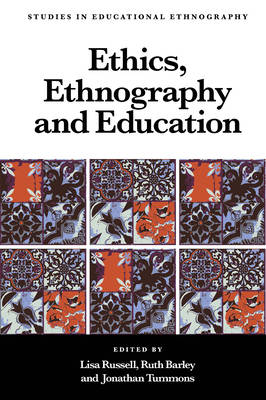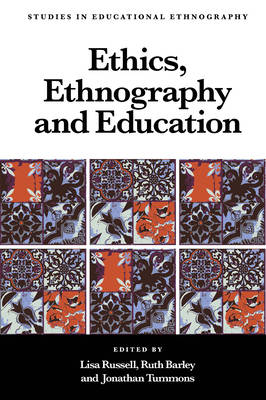
- Afhalen na 1 uur in een winkel met voorraad
- Gratis thuislevering in België
- Ruim aanbod met 7 miljoen producten
- Afhalen na 1 uur in een winkel met voorraad
- Gratis thuislevering in België
- Ruim aanbod met 7 miljoen producten
Ethics, Ethnography and Education
Omschrijving
By its very nature ethnography is an emergent methodology. To be ethical the ethnographer needs to manage research ethics in-situ. This need to manage ethical dilemmas as they arise often comes into conflict with increased ethical regulation and procedures from ethics review boards that require the researcher to foresee ethical quandaries before data collection commences. These regulations can constrain the emerging purpose of the study, evolving means of data collection and multifaceted ways of interacting with participants that are seen as being the strengths of undertaking an ethnographic approach.
The chapters in this volume problematise this tension and highlight the importance of managing ethics in-situ by reflecting on recently completed and current projects drawing out ethical dilemmas relating to data ownership, dissemination, representation, social justice and managing ethnographic studies in the midst of a global pandemic and Covid-19 lockdowns.
Reflecting on these experiences of doing educational ethnography with children and young people, drawing on a diverse range of studies conducted in England, Scotland, South America, India, and the Basque Country, this volume argues that administrative and conceptual change is needed to ensure that ethics does not become a tick box exercise but that ethnographers commit fully to conscientiously managing ethics in-situ.
Specificaties
Betrokkenen
- Uitgeverij:
Inhoud
- Aantal bladzijden:
- 184
- Taal:
- Engels
- Reeks:
Eigenschappen
- Productcode (EAN):
- 9781839822476
- Verschijningsdatum:
- 23/06/2022
- Uitvoering:
- Hardcover
- Formaat:
- Genaaid
- Afmetingen:
- 152 mm x 229 mm
- Gewicht:
- 417 g

Alleen bij Standaard Boekhandel
Beoordelingen
We publiceren alleen reviews die voldoen aan de voorwaarden voor reviews. Bekijk onze voorwaarden voor reviews.











